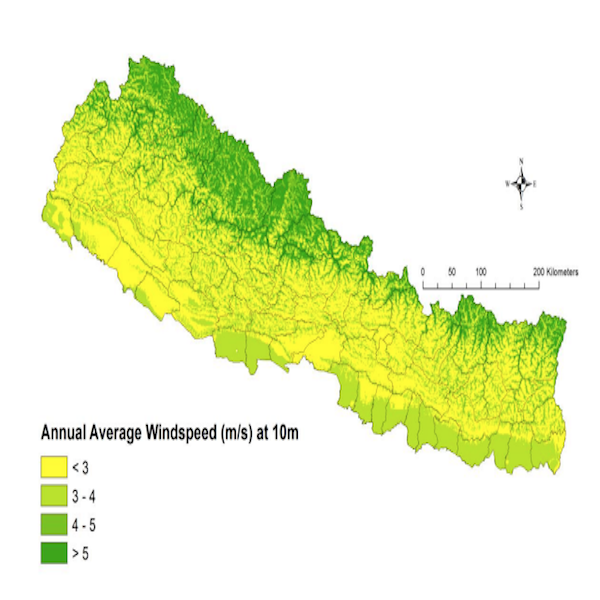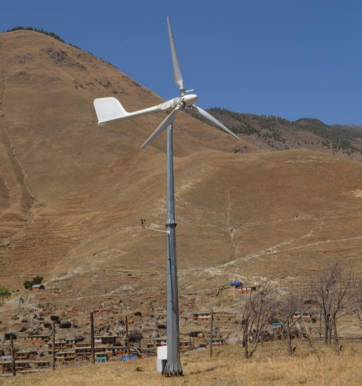In Trelew, Chubut, the students from the local Technical School have installed a new wind-solar hybrid system, capable of providing opportunity for energy self-sufficiency in the rural community.
Market Assessmemt of Solar-Wind Hybrid Systems in Nepal
Even though wind power has great potential for impact in Nepal, the actual application of the technology does not reflect it yet. This SEPS-Exchange project in Nepal is now presenting the results of the market assessment summarized and investigated for further use and development in Nepal. KAPEG Market Assessment Website
Good research and assessment of the market situation in the field of practice can be considered as highly influential on the final success of projects, in particular accounting for sustainable energy projects. As a matter of fact, the level of electrification in Nepal is still stagnating despite great efforts in recent years and an official electrification rate of 85% in the rural regions and 2% growth annually. Connections to the national grid and also introduction of off-grid Micro-Hydropower as well as solar projects contributed highly to these achievements, but one has to consider some small detail: even small appliances such as a solar lantern already count into the statistic. Therefore, the reliability becomes unclear and further technologies need to be considered as well. However, the number of Solar-Wind Turbines is comparatively low, even though the country offers adequate conditions for application of the technology.
Based on this fact, WISIONS supported Kathmandu Alternative Power and Energy Group (KAPEG) in partnership with Wind Empowerment (WE) in order to develop a market assessment for the implementation of small Solar-Wind Hybrid turbine systems in Nepal. Equipped with detailed local knowledge from KAPEG, a series of expert interviews and extensive techno-economic and mapping efforts the project partners successfully executed their fieldwork in spring 2018. The findings and results of this extensive and comprehensive assessment for the feasability of Solar-Wind Hybrid Systems in Nepal now provides policymakers and energy practicioners with a necessary framework of knowledge, facts and figures for the implementation of the technology in Nepal. All findings are now accessible on the website of KAPEG:



